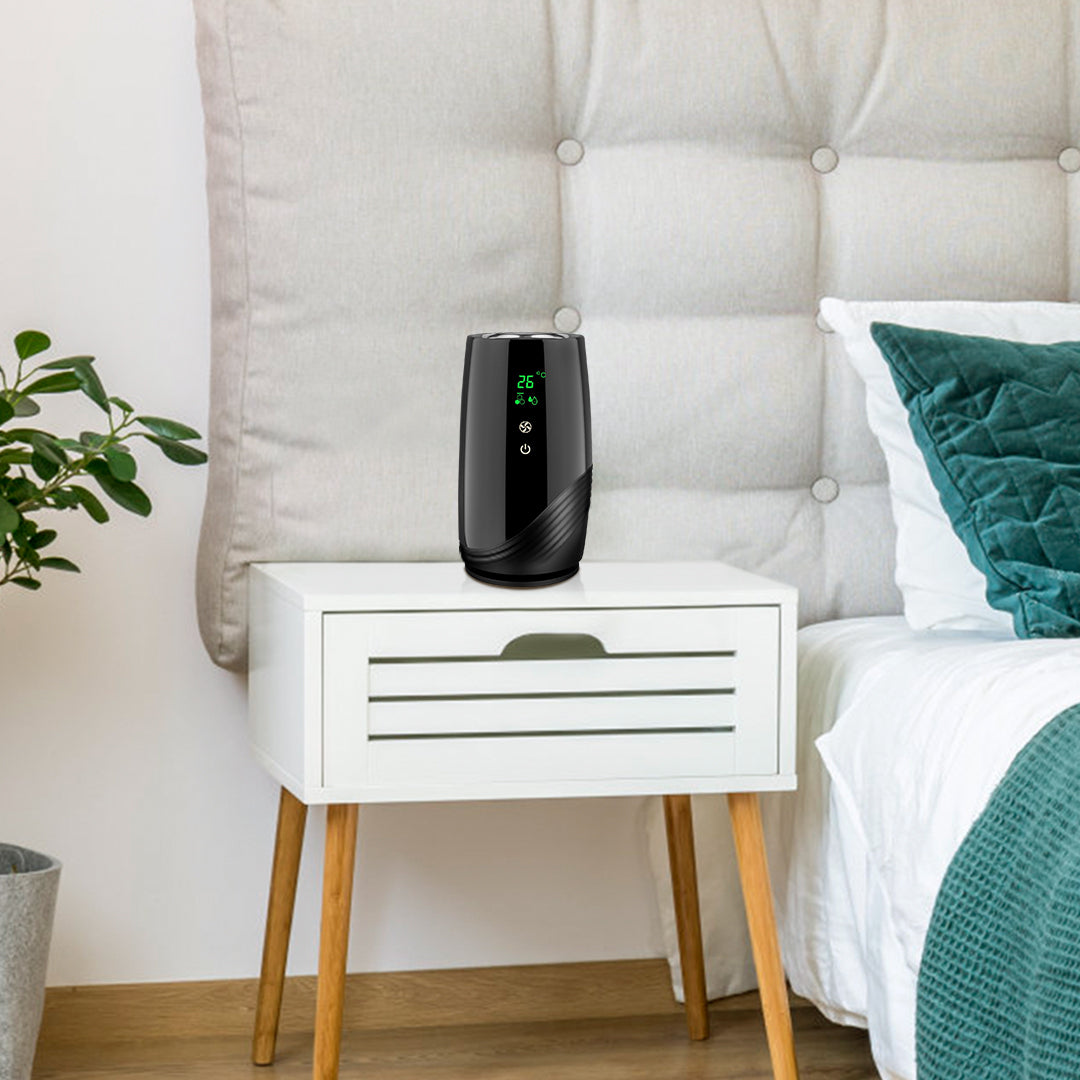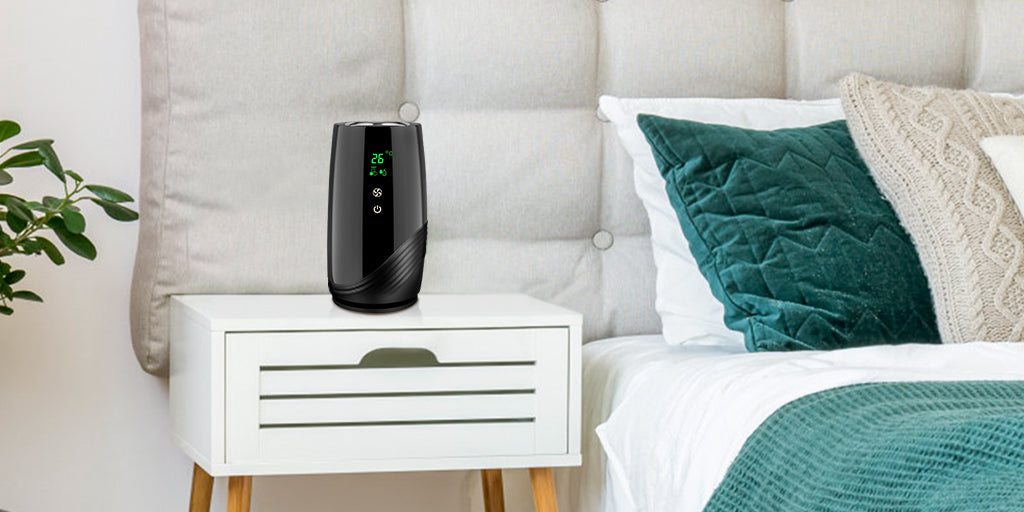
Can Air Purifiers Protect Against COVID-19?
Share

COVID-19 has altered lifestyles all over the world. While we didn't hesitate to hug someone or reach out for a handshake before, we now dread even being in a closed space. Now that we are all stuck at home with our family members, how do we keep the air we breathe at home pure enough for our loved ones to not fall sick? This is where air purifiers step in to join hands with other COVID-19 fighting weapons like sanitizers and masks.
Can Air Purifiers Really Protect Us?
Whether air purifiers can protect COVID-19 is one of the most popular questions being asked. For a few reasons, air purifier developers are not permitted to advertise their devices in the United States as health products—mostly because their advantages are not straightforward. Then, instead of claiming impressive health results, purifier ads typically concentrate on the amount of toxic substances in the air and the efficiency with which they are filtered out by their products.
To answer the question in the most fundamental terms: yes, air purifiers generally effectively filter particles out of the air— especially if they use a HEPA filter.
Which Kind of Air Purifier is Efficient?
To buy a high-quality, high-efficiency particulate air filter, you do not have to spend a lot of money. Portable air filters are designed to clean the air in a single room, but they cannot eliminate all air pollutants.
The virus is not expelled on its own. The virus has to attach to something, either to a microscopic piece of mucus, or a piece of dust in the environment - that's how it travels. A HEPA filter catches those and holds them there. It does mean that you have to change your filter at appropriate intervals. The filter does not kill the virus but rather exchanges clean air to get rid of the virus more easily.
A HEPA filter is attached to the filter itself electrostatically so that it can then circulate in the air, which is why it is so important to change the filters and properly clean them. One more tool to reduce the risk of contracting COVID-19 may be the use of air purifiers and filters, along with continued face masking, social distancing, and the use of hand sanitizers.
What are HEPA Filters?
High-efficiency particulate air (or HEPA) filters are standardized devices that have to eradicate 99.97% of 0.3 micrometer-sized particles in the air (a particularly difficult size to capture). With particles larger and smaller than that size, HEPA filters are generally more efficient. With such a filter, pollen, smoke particles and aerosol droplets that can spread COVID will all be filtered out of the air. Simply put, if you are cohabiting with an infectious person, do not rely on air purifiers to shield you from virus particles. If you sit on a couch and speak with someone who is sick, an air purifier across the room will not eliminate all the hazardous particles
The difference between trapping and destroying virus particles is an additional problem. Although the particles are collected by HEPA filters, other technologies, such as UV technology, can destroy virions. Such technology, sadly, also comes with its own risks.
Acekool Portable True H13 HEPA Filter Air Purifier
If we're talking about air purifiers with HEPA filters, then Acekool True H13 air purifier seems to be an ideal choice. Not only is it highly portable but is also budget-friendly. It runs quietly with minimal noise and has a sleek and modern design that fits well in most homes. Along with a HEPA filter, it has an activated carbon filter that helps filter out 99.97% of impurities.

Furthermore, its smart LED indicator is adept at giving you a filter change reminder. The multiple sensors of this purifier are capable of refreshing temperature and humidity every 10 seconds. If you are looking to add a cost-effective air purifier to the list of your home appliances, then Acekool is a wise choice.
How to Effectively Use Air Purifiers?
- Place it in a Flat Place Away From Walls
There are front air intakes and side intakes of most air purifiers with the outlet at the end. It is important to ensure that no items are blocking the air intake or outlet at the position you choose for your purifier. Place the air purifier, including the walls, at least 15 cm from the nearest object.
With no obstacles blocking the air intake and outlet, the purifier will suck in more air. Through doing so, before distributing new, clean air into the room, it will capture and extract allergens and microorganisms. It is important to position the purifier on a flat surface such as the floor, dresser, or table. A flat surface offers stability and ensures better performance, whether it has a stand or caster wheels.
- Keep Windows and Doors Closed
Make sure that you shut all the doors and windows while using the air purifier at home. The purified air inside a room can escape from the windows if the window is open. When used in enclosed spaces, such as a closed room, air purifiers perform best. Doors and windows may be opened throughout the day for adequate ventilation and the delivery of fresh air. However, when you use the air purifier, make sure that you close the doors and windows.
- Cleaning and Maintenance
In holding dust and other impurities at bay, the filters of the air purifier play a significant role. As a consequence, at the specified time, it is necessary to clean and replace the filters. To ensure the optimum operation of the air purifier, read the instructions for filter replacement carefully.
If you have a washable pre-filter in your air purifier, you can chuck it into your washing machine at least twice a month or every ten days. Following the manufacturer's instructions, you can even vacuum it. Although the filters provide an excellent contaminant trapping operation, they have a short lifespan. The lifetime of most filters is 6 to 12 months, but it depends on use.
- Ensure That Your Air Purifier is Switched On When You’re at Home
Air purification is an ongoing process as the air quality continues to improve, which is why you have to turn on the system 24/7. This can, however, affect the air purifier's filters. To optimize the impact of an air purifier, when you are inside your house, operate it.
Using air purifiers may be an added tool for battling the global pandemic along with practicing social distancing, using masks and sanitizers. However, it is important to note that no practice is 100% foolproof and cannot be completely relied on.